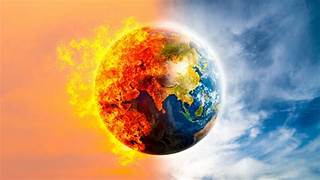TURKISH JOURNAL /Pia BOZYEL – January 2025 has been recorded as the hottest January in history, the World Meteorological Organization (WMO) announced Thursday, citing data from the UN-affiliated Copernicus Climate Service.
According to WMO, global temperatures last month were 1.75 degrees Celsius above pre-industrial levels and 0.79°C higher than the 1991-2020 average, despite expectations that the La Niña weather phenomenon would bring cooler temperatures.
The international community agreed in 2015 to limit the global temperature rise to 1.5°C above pre-industrial levels under the Paris Agreement.
Unexpected temperature trends
WMO described the January data as “surprising,” noting that it marked the 18th month in the last 19 where the global average surface air temperature exceeded the 1.5°C threshold above pre-industrial levels.
“January 2025 is another surprising month, continuing the record temperatures observed throughout the last two years, despite the development of La Niña conditions in the tropical Pacific and their temporary cooling effect on global temperatures,” said Samantha Burgess, Copernicus Strategic Lead for Climate.
In the Northern Hemisphere, January 2025 was marked by “wetter-than-average conditions” in Western Europe, as well as parts of Italy, Scandinavia, and the Baltic countries, with heavy rainfall and flooding reported in several regions.
Regional climate variations
Conversely, drier-than-average conditions were observed in northern parts of the UK and Ireland, eastern Spain, and the northern Black Sea region.
Beyond Europe, above-average precipitation was recorded in Alaska, Canada, central and eastern Russia, eastern Australia, southeastern Africa, and southern Brazil, with several areas experiencing floods and associated damage.
Meanwhile, southwestern parts of the United States and northern Mexico, northern Africa, the Middle East, Central Asia, and eastern China, as well as large parts of southern Africa, southern South America, and Australia, experienced below-average rainfall.
WMO attributed the rise in global temperatures primarily to human activities, particularly the burning of fossil fuels, which has led to record concentrations of greenhouse gases in the atmosphere. Other contributing factors include deforestation, it added.




